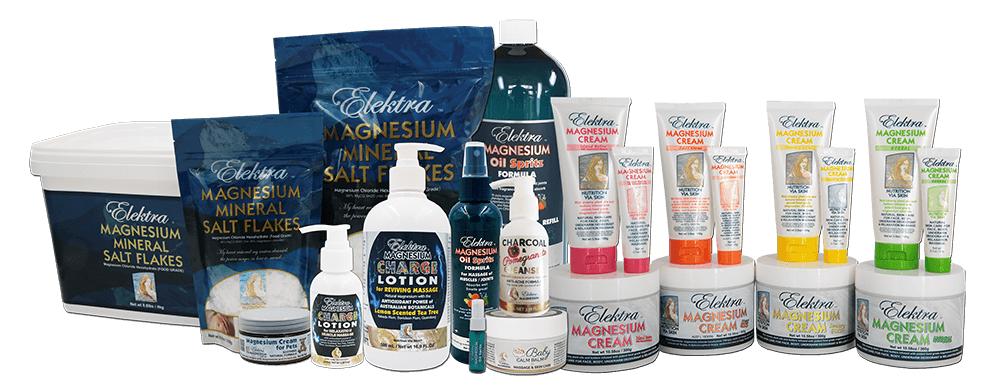Are you suffering from a feeling of anxiety that is ruining your life? If you’re worrying about everything and not feeling peaceful or safe, you may think the only solution is medication or CBT (cognitive behavioural therapy), which of course can help. But what if the critters living in your gut (the gut microbiome) are the real cause of your distressed emotions? Did you know that toxin-producing bacteria can make you feel wound up for no reason? Studies show that bacteria in the gastrointestinal (GI) tract can activate neural pathways and central nervous system (CNS) signaling systems.
When you cultivate a healthy gut microbiome, it can produce all the neurotransmitters you need for a healthy state of mind and loving emotions. And that means not being overwhelmed with fears and anxiety. That means sleeping better. That means having more clarity of mind, confidence and energy. That means enjoying life more.
Watch Bingenetworks.tv with Dr. Jamie Turndorf and Sandy Sanderson about how gut health can influence mental health…

How does the gut microbiome (microbiota) help us to stay mentally and physically healthy? What can go wrong?
There are over 100 trillion microorganisms in the human gut, which is approximately ten times the number of cells in the entire human body. The gut microbiome (microbiota) is a community of microorganisms comprised of both beneficial ‘good’ bacteria and pathogenic ‘harmful’ bacteria. The beneficial bacteria work in our gut symbiotically. They:
- maintain a functional gut lining and protective barrier;
- provide efficient digestion and motility;
- assist with immune tolerance;
- control pathogenic organisms and parasites;
- provide amino acids and antioxidant vitamins (including B12), sulfur metabolism, detoxification and energy production.

The maintenance of a healthy gut microbiome is absolutely crucial to mental health, and there is a direct association between the occurence of anxiety and depression and gut dysbiosis. Interestingly, the use of antibiotics has greatly contributed to an increase in gut dysbiosis and IBS symptoms. AND, consequently, the use of antibiotics increases the risk of anxiety and depression, as well as other disease co-morbidities. “A population based study out of the United Kingdom of over one million people found that a single course of antibiotics significantly increased the lifetime risk of both depression and anxiety, with a direct correlation between disease risk and increased courses of antibiotics.”
The gut microbiome talks to the brain via signalling peptides. Some call the gut our ‘second brain’. The gut-brain-axis is vitally important to mental and physical health. Apart from a denatured diet, chemicals and antibiotics, chronic stress also greatly disrupts the gut microbiome, and thus causes anxiety and depression. As gut dysbiosis makes us more sensitive and less able to cope with stress, and the more stress we experience the more upset the microbiome gets, it can become a negative feedback loop.
Note that magnesium deficiency also makes us less able to cope and recover from stress due to its control of calcium, and the subsequent calming of the central nervous system (CNS).
The microbial balance of our gut directly influences our Hypothalamic-Pituitary-Adrenal (HPA) axis, the production of hormones and neurotransmitters, and our immune system‘s regulation. Stress is very debilitating and causes depletion of magnesium because of excessive magnesium loss via the kidneys. Magnesium deficiency causes energy depletion and acidosis, which triggers inflammatory states, resulting in moods swings, hormone imbalance, mental illnesses, fatigue, irritability, pain symptoms, and a weaker immune system. Magnesium deficiency also directly affects the beneficial bacteria, which thus leads to depressive-like behaviours.

Stresses, especially chemical stresses from heavy metals, fluorides, bisphenol A, estrogen-mimicking compounds, and pesticides like glyphosate, suppress thyroid function. Note also that tap water often contains a combination of chemicals like chlorine and fluoride, both of which kill gut microbiota. So, not only do they interfere with digestion, but they also block the activity of magnesium (so vital to the life of our cells as well as our microbiome).
And that’s not all folks. These chemical poisons do something else just as sinister: Glyphosate has been shown in several studies to block the shikimate pathway in gut bacteria, as well as our own sulphate detoxification and antioxidant pathways. This means that over time our cells become overloaded with waste products, causing acidosis and disintegration.
When the mitochondria become overwhelmed by free radicals and acidosis because the garbage isn’t being taken out, they slow down production of ATP, and the cell walls start to inhibit the entry of insulin and blood sugar to make energy. If too much blood sugar were to get in, more acid byproducts would ensue, which can be very destructive to mitochondria. This means the sugars, instead of being used to make energy, end up going to the liver to be stored as more fat deposits.
The liver then gets clogged and overloaded, as the body has to produce excessive fat cells to sequester the excess toxins that cannot otherwise be eliminated or neutralised, in order to protect the internal organs. Lipopolysaccharide (LPS) – ie. endotoxins produced by pathogenic microbes of the gut – cause an increase in Low Density Lipproteins (LDL) – bad cholesterol. This is because our good cholesterol – High Density Lipoprotein (HDL) – is used to clean and mop up free radicals, which in turn makes the LDL.

Acids (free radicals) drive down the oxygen and make life difficult for the beneficial bacteria. So, with less magnesium and sulphate detoxification capacity, the pH balance becomes upset and slides more into the acidic range. This means the mitochondria, which make our ATP (adenosine triphosphate) electrical energy, can’t keep up with normal metabolism anymore. This state is called metabolic syndrome, which later develops into sugar diabetes (Diabetes Type 2) as it gets worse.

Both gut dysbiosis and magnesium deficiency make us more sensitive and less able to cope with stress. Magnesium controls how calcium is used by the body. It is the master mineral electrolyte responsible for restoring the ‘rest and digest’ parasympathetic nervous system so that we can calm down and relax. Magnesium greatly contributes to the production of our detoxification enzymes such as glutathione and superoxide dismutase, and thus helps balance pH, which increases oxygen supply and metabolism.
Charged up by magnesium and the availability of oxygen, commensal bacteria are involved in regulating concentration of tryptophan and 5HT, which are necessary to make serotonin – a vital neurotransmitter that helps us feel satisfied. Serotonin, as well as magnesium, is used to make gamma aminobutyric acid (GABA) which calms down the central nervous system. Without enough serotonin, the dopamine and other catecholamine stress hormones can be over-supplied and so over-stimulate the nervous system with symptoms of hyperactivity and ADHD. This imbalance also inhibits deep restful sleep because it becomes hard to relax and calm down enough.
Children who are delivered via caesarian section, who weren’t breast-fed, or who experienced other excessive stresses, are more likely to exibit gut dysbiosis, with symptoms of cholic, allergies, fussy eating habits, restlessness and sleep problems. Mental health is affected when sleep is disturbed and not restful. This constellation of symptoms also lead to negative emotions, bad temperament and increased anxiety. A study in the journal Brian, Behaviour and Immunity concluded:
“Our results show that gut microbiota composition is linked to individual variability in brain network connectivity, which in turn mediated individual differences in behavioral temperament, specifically negative emotionality, among infants. ”

The effects of stress on the microbiome of newborn can have dire consequences on brain function. According to a McMaster University study, “Neonatal stress reactivity increased gut dysfunction as marked by changes in microbiota which, in turn, appeared to correlate with altered brain function as part of a bi-directional feedback loop.” (De Palma et al., 2015)
Microbes make their home in the gut shortly after birth. Studies found that breastfeeding, which introduces more Bifidobacteria into the gut, was directly correlated with higher IgA levels, which is an immunoglobulin that provides immunity within the intestines and other mucosal membranes. It also correlated indirectly with lower IL-6 levels, which is a proinflammatory cytokine that normally occurs in acute and chronic inflammation.
A gut-health study found that, “Bifidobacterium is an important part of the infant microbiome, and together with species in the Lactobacillus genus, is key in producing gamma-Aminobutyric acid (GABA), an inhibitory regulator of various neural pathways.” (Clapp et al., 2017). Breastmilk, by introducing beneficial gut bacteria, thus protects against inflammation, calms the central nervous system with GABA production, and reduces the risk of gastroenteritis. In contrast, infants fed formula during their first four weeks of life demonstrated a decrease in total number of bacterial species.
Irritable Bowel Syndrome (IBS), the gut and brain connection
“IBS is considered to reflect pathologically altered gut-brain axis homeostasis. This disorder is associated with abdominal visceral pain and altered bowel habits, and is strongly comorbid with anxiety and depression.”
When gut dysbiosis exacerbates leaky gut, it allows endotoxins from the intestine to enter the body’s interior, circulate in the blood stream, and eventually cross the blood-brain-barrier, causing depression, mood disorders, brain fog, and thus increasing the risk of premature cognitive decline. Thus gut disorders, excessive stress, and magnesium deficiency combine to cause symptoms of anxiety and depression by triggering inflammatory responses, acidosis and further oxidative stress. The resulting down-stream degenerative diseases that can pop up later in life include diabetes, obesity, cardiovascular disease and cancer.

Pathogenic gram-negative bacteria, such as Staphylococcal enterotoxin B, can induce anxiety symptoms by producing Lipopolysaccharide (LPS), an endotoxin that not only induces anxiety, but also depression, brain fog and pain hyper-sensitivity. This LPS endotoxin attacks the gut lining so that the mucosa protecting the endothelial lining of the gut erodes and loosens the tight junctions. The resulting leaky gut allows more endotoxins to pass through the gut wall into the blood circulation. They can eventually also weaken the blood-brain barrier, allowing access to the brain.
If the endotoxins enter the brain, they can cause inflammation, sensory overload, and migraines, as well as anxiogenic mental states with disruption to neurotransmitters, as seen in bi-polar disorder, autism and schizophrenia. These conditions usually exist in conjunction with irritable bowel syndrome (IBS), myalgic encephalomyelitis (ME, aka chronic fatigue syndrome), fibromyalgia (FM), complex regional pain syndrome, alcohol dependency, insulin resistance and obesity.
With leaky gut, gluten can also enter the circulation, causing mood swings and irritability. This side effect (also associated with Small Intestinal Bacterial Overgrowth – SIBO) can mimic Coeliac disease and is called ‘non-coeliac-gluten-sensitivity‘. If gluten reaches the brain it can be converted to the neurotransmitter glutamate, which in excess over-stimulates neuronal activity, thereby increasing anxiety and stress, hyperactivity, hypervigilance, and excessive catecholamine release with more acidic by-products.
In extreme cases it can escalate to an inflammatory immune system cytokine storm, which can then impair cognitive performance. This state is a kind of ‘over-drive’, where too many free radicals (acid waste products) pile up, not enough antioxidants are available, and neurons can over-fire, burn out and die. It’s what some refer to as the brain being ‘on fire’.
Stomach digestion
Another confounding factor is hypothyroidism because this impairs the ability to adequately make enough stomach acid for digestion. It is associated with deficiencies in magnesium, iodine, zinc, and B group vitamins. The Catch-22 situation is that lack of stomach acid inhibits proper digestion and absorption of the very nutrients we need to make the stomach acid and enzymes.
When stomach acid is weak, the stomach keeps churning and churning, with the contents staying there way too long and starting to ferment. This causes acid reflux and lots of belching. The transit of the food chyme becomes slower. This is usually because the pancreas doesn’t send enough neutralising sodium bicarbonate to the stomach for the chyme to pass to the next level – the small intestine – which requires a neutral pH or at least 6pH. The pancreas is responsible for pH adjustment, but it can malfunction if not enough electrolytes are available, or being lost by the kidneys.
Eventually the stomach chyme gets enough alkali buffer to pass to the next level. If the stomach acid had not been strong enough during stomach digestion, some pathogenic bacteria can stay alive and make their way through to the small intestine to keep feasting of the partly digested food chyme. The resulting Small Intestine Bacterial Overgrowth is called SIBO and is a big distress for those with irritable bowel syndrome (IBS). It causes a lot of bloating and pain with hydrogen sulfide (very smelly) gas. Partly digested proteins can also cause allergic reactions and inflammation.

People with SIBO can control the symptoms by eating a low FODMAP diet for a while. FODMAP stands for Fermentable Oligosaccharides Disaccharides Monosaccharides And Polyols, which are short chain carbohydrates. If you have this condition it is recommended to see a health professional experienced in this area to guide you through to recovery so you can at least enjoy some medium FODMAP foods, and not miss out on optimal nutrition, as many FODMAP foods are also high in vital antioxidants.

Sulfur and sulfate sensitivity can be a genetic issue, or the result of SIBO where microbes chow down on the food in your small intestine, blowing it up like a baloon with their fermentaiton gases. The body needs sulfur and its conversion to sulfated products (such as glutathione) for detoxification, but when there is too much competition with microbes they can steal your sulfur and inhibit detox. They then produce hydrogen sulfide gas, which attracts other microorganisms like archaea that consume it and produce methane, which in turn slows down the motility of the digestive tract, causing constipation. Bad constipation then allows more wastes to pass through the leaky gut to the interior, causing headaches and stress symptoms.
The main goal to get out of the SIBO trap is:
- To make sure you get stomach digestion support;
- Better pH adjustments if the pancreas is slack, and also that;
- Motility (peristaltic movement through the digestive tract) doesn’t slow down too much and give the SIBO bacteria time to cause problems.
- Temporary low FODMAP diet, with incremental changes to medium FODMAP over time as can be tolerated.
Those that have been on a treadmill of broad-spectrum antibiotics will experience a flair up of candida yeast overgrowths because bacteria and fungi compete… If you kill the bacteria, the fungi have a party in your system. In addition to sugar, candida also has an affinity for mercury, and as they consume it they can make the presence of mercury invisible to many diagnostic tests. But the mercury toxicity symptoms tend to tell the truth. Toxic metals like mercury also block our essential minerals like magnesium and zinc. If there are mineral deficiencies (despite good diet) or problems with pH balance, it could be due to toxic metals, or kidney and pancreas dysfunction.
Candida overgrowth is usually accompanied by the proliferation of other types of pathogenic bacteria, some of which can then cause the system to swing to diarrhea, and then back again in the IBS merry-go-round. The fungus and pathogens become buddies in a toxic anaerobic (hypoxic, low or no oxygen) system, which becomes hostile to our beneficial bacteria that need oxygen and alkalinity. This leads to excessive sugar cravings and metabolic syndrome, which increases acidosis, low oxygen and tissue breakdown: A negative cycle.
It’s best to avoid the antibiotics if possible. In extreme cases of SIBO, treatment with the targeted antibiotic (not broad-spectrum) such as Rifaximin, combined with partially hydrolysed guar gum, may be warranted. Consult your health practitioner if you are in this category. Follow up immediately after the treatment with the right probiotic supplements to take charge of the gut territory after the bad tenants have been kicked out. A therapist specializing in this area can help with the right protocol.
How to restore a healthy gut microbiome
Ultimately, the restoration of the gut microbiome, gut barrier and mucin lining should be the goal, so that FODMAP foods can once again be tolerated, as they provide important nutrients, hydration and roughage for better intestinal motility. Stomach digestion can be improved with the help of fermented foods, digestive enzymes, betaine hydrochloride, and mineral supplements.
If you have a compromised gut, the first thing to do is to get a lot of magnesium into you. As it’s unlikely you will be getting enough via the digestive system alone, and excessive stress causes magnesium deficiency, the best way to get more magnesium is via the skin using transdermal magnesium products. This way you can get your extra magnesium and avoid the digestive system altogether.
The skin will allow a far greater uptake than with oral magnesium supplements. However, if you need to use magnesium supplements as a laxative, then that’s a different reason. Bear in mind that when magnesium attracts water and causes the bowel contents to loosen and be expelled, your magnesium (or most of it) also goes down the toilet and is not all absorbed across the intestinal wall to the interior.
However, drinking magnesium mineral water at the same concentration as what would be naturally ocur in spring water, makes the water more satisfying, hydrating and tasty. This lower concentration gets through the bowel wall quite easily, but it’s not enough by itself to cater for high-end needs. See Magnesium Flakes page for more instructions and videos.
You can combine a number of different magnesium products, such as magnesium oil, lotion and creams, and magnesium bathing and foot-soaking, in order to get enough magnesium to restore optimum levels. Getting enough magnesium is like plugging into an electrical power point and recharging. It works wonders to recover from stress and to help turn around that negative cycle into a positive one. Just try it and feel the difference.

Magnesium is our charging station for mitochondrial ATP (adenosine triphosphate) energy production. This tiny molecular battery pack drives the production of many proteins including enzymes, hormones and collagen. Magnesium also helps make the GABA we need to feel calm and relaxed, as well as to sleep better. It controls calcium, which is a tightening mineral that makes our muscles stay tense and knotted, spasming or painful, when not enough magnesium is available.
Magnesium is the mineral that relaxes the smooth muscles of the endothelial lining of arteries and vessels, the intestinal muscles, as well as the whole digestive tract, endocannabinoid system and the vagus nerve. If you feel like you just can’t relax and let go, then it’s likely you have a magnesium deficiency. This makes us feel uptight, tense and prone to anxiety.
You will notice that health declines mostly after a severe trauma or chronic stress. The more stress you have experienced, the more you are likely to be deficient in magnesium, as we lose it more under stress via the kidneys. The whole Hypothalamus-Pituitary-Adrenal (HPA) axis can become disturbed when calcium channels get stuck in the ‘fight or flight’ sympathetic mode, without enough magnesium to control the calcium. The more stress hormones, the more acids and free radicals, the less oxygen, the more we become depleted in beneficial bacteria in favour of pathogens, and the more detrimentally it affects our mood and energy.
“Imbalances of the microbiota-gut-brain axis induced by consuming a magnesium-deficient diet, contributes to the development of depressive-like behaviour.” (Winther et al., 2015).
There are over 100 years of research studies attesting to how effective magnesium is in helping to recover from stress and alleviate general anxiety symptoms. In another study it was found that supplementation with magnesium chloride resulted in a clinically significant net improvement in Generalized Anxiety. “Similar effects were observed regardless of age, gender, baseline severity of depression, baseline magnesium level, or use of antidepressant treatments. Effects were observed within 2 weeks.” (Tarleton et al., 2017)
The importance of detoxification
Make sure also to avoid heavy metals and toxins in the food supply and environment, because these can block magnesium, as well as kill your beneficial gut microbiome. Avoid packaged processed foods, which usually contain unwanted additives and chemicals. Select organic produce wherever you can, or grow your own. One of the worst chemical culprits now ubiquitous in our food supply is glyphosate, which is not only used in genetically modified crops, but also in the desiccation of grains like wheat, corn and soy to dry them out and get them to market sooner. It is so bad for your gut – like an antibiotic where you don’t ever finish the course (unless you change your diet to avoid it).
This insidious chemical embeds itself in the grain and is still an active pesticide when you eat the food. It kills gut bacteria by blocking the shikimate pathway of plants and bacteria, which stifles sulphate detoxification and pH balance. (Torretta et al., 2018). It chokes cells and deprives them of oxygen with hypoxia (suffocation). So, don’t poison your gut with GMO or pesticide-laden foods. Your life depends on it.
Beneficial gut bacteria need a good terrain – just like an aerated, hydrated and mineral-balanced soil that can grow healthy plants. If you take probiotic supplements, those microbes (like seeds) may not survive well in an acidic and toxic environment where the pathogenic bacteria have proliferated.
Fasting, together with colonic irrigation, has proven to be a helpful stepping stone towards alkalising and cleaning up a toxic gut to get the terrain ready for a good batch of microbial communities. To use the gardening analogy again, it would be like weeding the garden, aerating the soil, and topping up with minerals, fertilizer and water.
The German Buchinger fasting program has demonstrated significant changes in the gut microbiome, which has delivered impressive benefits for those dealing with diabetes and heart disease. This type of tissue cleanse can also be combined with infrared saunas to help the body excrete wastes trandermally. It’s a very ‘fast’ way to get a lot done in a short time, ie, a week or two.
However for some people this type of detox may be too fast if too much waste is dumped at once and not enough buffer antioxidants are available to mop up, which can manifest as symptoms of headaches, rashes, fatigue, brain fog etc. Many therapists recommend supplementing with food grade bentonite clay or zeolite to help mop up the digestive system of these kinds of wastes, as they can capture them like a vacuum cleaner.
Let food be thy medicine…

Traditional diets with the healthiest and most diverse gut microbiome are based on complex carbohydrates – that is fresh unprocessed vegetables and fruits, a small amount of soaked seeds, nuts and oats (porridge) for roughage, and a smaller amount of well cooked meats, including offal to support thyroid and liver – and healthy fats of course. Seed oils should be cold pressed and not over-heated, as they break down easily. Cook with solid fats like coconut oil, butter, chicken fat or lard, as they are more heat stable. Make sure you don’t consume transfats such as in margarine, or fats degraded by extreme heat as in deep frying.
Depending on the severity of your symptoms, take it easy and don’t rush the process. People with SIBO will need some professional guidance and to approach recovery in increments. They will find it easier to eat a low FODMAP diet for a while, with broths and slow cooked soups for better digestion, and supplements to support stomach acid production. In some cases your doctor may recommend the targetted antibiotic treatment mentioned above, before replanting the gut with beneficial bacterial.
Remember to get your dose of natural sunlight every day for vitamin D3 production, supporting the immune system, central nervous system and bone health. The best quality vitamin D3 is synthesised in the skin with direct sunlight, and a little cholesterol sulfate and magnesium. You can apply some Magnesium Cream before sunbathing to make sure there is enough magnesium and fatty support available. If you don’t have the opportunity of enough daily sunshine, then make sure you consume vitamin D-rich foods or take supplements.

Bit by bit, gut health and digestion will improve. Just persevere, and remember to apply about 1,000mg of transdermal magnesium daily to ensure an optimal supply of magnesium for recovery from stress and to strengthen the immune system. You can’t get too much transdermally, as the body only takes what it needs from the skin reservoir. If your body is very hungry for magnesium it will be taken up faster. Otherwise, it just goes in a bit more slowly, but eventually all is taken up. This is because the body’s needs for magnesium is ongoing and ever-present.
Magnesium helps us stay younger and fitter longer. Stress wears us down, but magnesium can build us up again. Calming down the nervous system is the first and most important step towards recovery from stress, and transdermal magnesium can come to the rescue – fast. Just feel it.
By Sandy Sanderson © 2021
www.elektramagnesium.com.au



